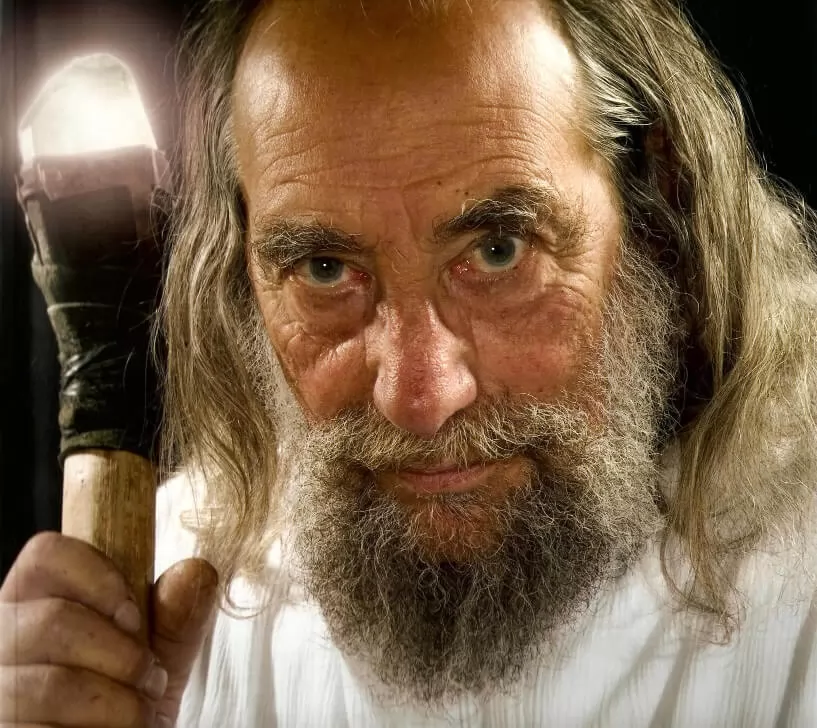THE AXIAL AGE THAT FOLLOWED THE FIRST DARK AGE
Around 1200 BCE the sophisticated Bronze Age Civilisation which had flourished for around 2000 years came to a catastrophic end with a colossal natural disaster and widespread political disorder. With a few local exceptions, such as Upper Egypt, and Assyria, all the centres in Europe, North Africa, the Middle East and India were destroyed. China, though late to develop bronze-working and iron-working was partly independent and although in cultural decline largely escaped a dark age.
This age is also called the Archaic stage of human culture, where the community was governed by priest-kings who heard the voices of the gods and each community was set apart from other communities with their own gods. Sociologists of religion point out that social order was maintained by unquestioning obedience to the will of the gods. There was little self-awareness as agents, little conscience, and limited ability to choose between good and evil. Communal values of what is right and wrong behaviour were of course strong.
They point to the ending of this period of supernaturally-sanctioned “Mythic-Archaic” consciousness and the gradual appearance of a new form of consciousness. This can be seen in written expressions which showed that a few leading personalities were reflecting on events, constructing narratives linking events (history), moving towards human universalism and recommending agency where individual actions are based on conscious choice. This all took place in a remarkably short time in what has been called the Axial Age which culminated at roughly the same time during the sixth century BCE in most of the civilised world from China, India, and Persia to the Middle East and Greece. Egypt is something of an exception due to its isolation by surrounding deserts and its exceptionally benign agricultural fertility which was conducive to early manifestations of self-reflective consciousness and narrative writing.
During the long period of chaos following the collapse of the Bronze Age Civilisation the invention of easy ways of smelting iron greatly improved technology of all kinds and eventually led to improved communication, agriculture manufacturing and the building of large cities with leisured elites. Personalities such as Confucius, Lao Tsu, The Buddha, Zoroaster, Heraclitus and others established canons interpreting and systematising previous messages of the gods and their successors founded schools. Jewish prophets like Jeremiah and the scribes living exile reinterpreted their sacred texts and this eventuated in the appearance of Jesus, Paul and Mohammed.
A case can be made for changes in human consciousness taking place sometime around 40,000 BCE with the invention of speaking and simple mimesis of early man was augmented by the invention of language as an “operating system”. Around 3000 BCE the invention of writing and bronze casting in the Middle East and Egypt transformed simple Neolithic village life and produced sophisticated urban centres. During the seventh and sixth centuries BCE, after the hundreds of years of chaos that followed the catastrophic total destruction of the Bronze Age civilisations in Europe and the Middle East around 1200 BCE, new Iron Age civilisations rapidly arose. These were based on the invention of cheap iron smelting, resulting in deeper ploughing, plentiful weapons, greater specialisation of labour and the elaboration of writing including written codes of instructions derived from the voices of gods now largely fallen silent.
Drawing upon behavioural experiments by psychologists, psychiatric studies of schizophrenia, neuroscience brain studies, careful reading of orally transmitted ancient texts and examination of archaeological mapping of temple complexes, Jaynes in his book on what he called the bicameral mind, concluded that hearing voices that commanded behaviour at that time was quite common and not regarded as deviant but was on the contrary the source of all Bronze Age authority other than simple routine skill performances. In The Iliad for example the heroes were simply obeying the spoken instruction of voices they heard and ascribed to gods. There is almost no sign of reflection, no sense of self and therefore no personal agency. There is little if any transcendental ideology of a higher level of spiritual reality requiring personal commitment to ethical behaviour and hence there is no major problem of evil. They lived “embedded” in what has been called “mythical time and space”.

